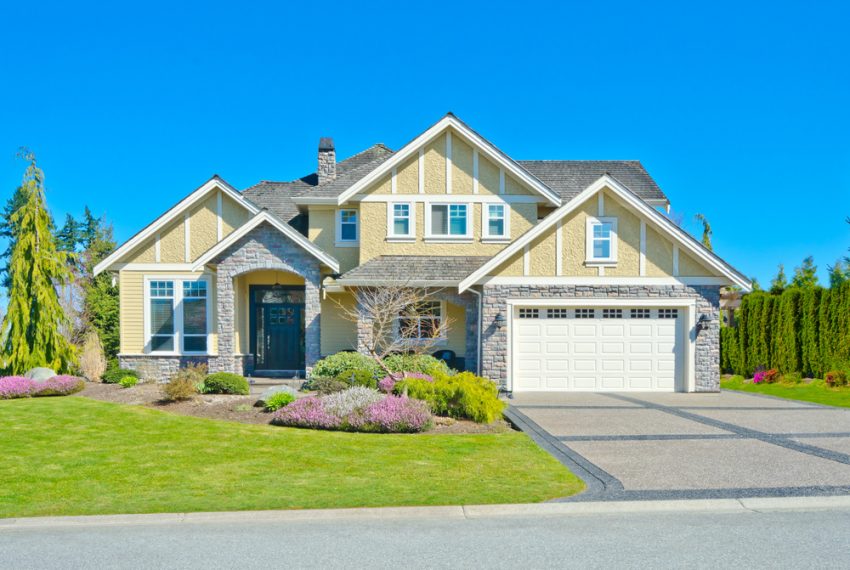
Learn More About Senior Living Care Types

Assisted living facilities have become one of the most popular form of senior care in the past few years and it’s because the senior living option allows for the resident to feel free and live independently while still receiving high levels of care with daily living and everyday tasks in a safe environment. Most assisted living facilities offer services such as meals, laundry, living accommodations, security, transportation, housekeeping, emergency call systems, social activities, memory care, medicine management, supervision, 24/7 care, nurse check ups, and assistance with walking, eating, bathing, and going to the bathroom. These basic services are usually greatly enhanced by most assisted living facilities today to provide better care with a wider range of options for residents that might not even have qualify for assisted living originally. Assisted Living Communities are the fastest growing care option for seniors that can provide just the precise amount of care you need with a wide range of choices in services, resident capacity, communities, private rooms, and apartments.
Independent living facilities and communities also known as Retirement communities are homes for seniors aged 55 and over in the style of apartment buildings, houses, and gated communities. Independent living is ideal for seniors who need only basic assistance with daily living, every day tasks, and activities. Most facilities offer medical care and a 24-hour awake staff as you need it and a wide range of amenities and services such as housekeeping, room service, daily meals, laundry, nurse on call, 24-hour emergency call systems, transportation, classes, sports, swimming pools, fitness centers, arts and crafts, restaurant style dining, golf courses, and more. Basic one bedroom apartments are most affordable and you can still get all the benefits of the communities but if you can afford the price, you will finds most communities have luxury suites with large 3-4 bedroom apartments. If you don’t want to lose any independence or freedom and can handle some of the more simple day to day tasks by yourself, independent living is perfect for you.
Board and Care homes are very similar to Assisted Living Facilities and both are sometimes called Residential Care Facilities, Residential Care Homes, Sheltered housing, or Alternative care facilities. Board and care homes are much smaller than assisted living homes and usually offer less amenities and services by default but they tend to be more homelike, quiet, and personal with the staff. You’ll find these facilities tend to be very flexible with services and are usually willing to accommodate your every personal need as you discuss prices. The greatest benefits are the feeling of owning a home with a front/back yard, home cooked meals, and relaxing in front of the TV or playing a board game as you desire. Board and care homes will usually only hold about 3 to 10 residents in a private or shared room and are mostly located in quiet suburban neighborhoods with low crime rates and an aging population.
Nursing Homes provide custodial care which is the highest level of care possible while not in a hospital. Services include feeding, bathing, dressing, dressing, getting in/out of bed, and walking. Nursing homes require highly trained medical professionals to take care of a patient’s needs and health while licensed physicians supervise the patient’s well being. This allows for around the clock care and insures that everything is being done to keep a patient as healthy as possible without the need to visit a hospital. Alongside the main staff, Nursing homes usually offer other professional’s services from occupational therapists, and physical therapists, aquatic therapists, speech therapists and more.
In-Home Care services assist people with illnesses, disease, disabilities or injuries in the comfort of their own home. If you don’t want to budge from your home and deal with the hassles that come with moving, Home Care is definitely for you. Services can range from basic needs such as cooking, light housekeeping, transportation, and laundry, to feeding, bathing, physical therapy, dental, and 24/7 care. Care takers vary in degree of experience and credentials so it’s important to know if you require a highly trained nurse as a caregiver in the case you require professional health care or simply a licensed by the state care taker for basic daily tasks. Agencies will usually have registered nurses, licensed practical nurses, and home health aides ready to hire based on your unique requirements for home care.
Respite care are short stays at assisted living facilities, nursing homes, or memory care facilities usually staying for about or less than a month. Respite care is sometimes referred to as adult day care or senior daycare facilities since the stay is short but the experience is the same as anyone in a facility for long term stay. Residents will get the same services, features, meals, housekeeping, security, amenities, and care for the entire time they spend at the facility and can leave with long lasting memories of a good time with new friends and improved health until next time.
Alzheimer’s Memory Care and Dementia Memory Care Facilities cater to the needs of individuals with memory diseases and disabilities. Memory Care is offered by all types of facilities including Assisted living, Nursing Homes, Board and Care, and Respite Care but there are many Memory Care facilities which specifically care for such patients at a much higher level of quality. A Highly trained 24-hour awake medical staff is is required to care for and support patients and must often deal with behavioral issues, eating problems, wandering, aggressiveness, and hallucinations while on duty. Memory Care facilities must also take extra precautions with advanced tracking technology and security measures to prevent any residents from wandering away, becoming disoriented, or hurting themselves. The nursing staff must employ and adapt to ever changing tactics when dealing with new arising issues as the diseases progress, behaviors change, and impairment increases to keep the patients calm, administer care, treatment, and manage stress for their well being and livelihood.
Senior apartments are also referred to as Independent living Communities or Retirement Communities but differ in that they don’t usually offer the services and amenities of other care types available today. These apartments are almost always restricted to age 55 or older and offer everything from basic apartments with one bathroom and kitchen to 3-4 bedroom luxury suites with multiple bathrooms, a large kitchen, and a large balcony. Apartments are designed to perfectly accommodate the needs of the elderly with a limited amount of stairs, in-unit laundry, gated areas, and short walks to the car, elevator, and food/activity areas. Though limited in services and amenities most apartments offer some additional services like light housekeeping, meals, and check ups. Limited organized social activities are also popular as you will be surrounded by people of similar interests and ages.

